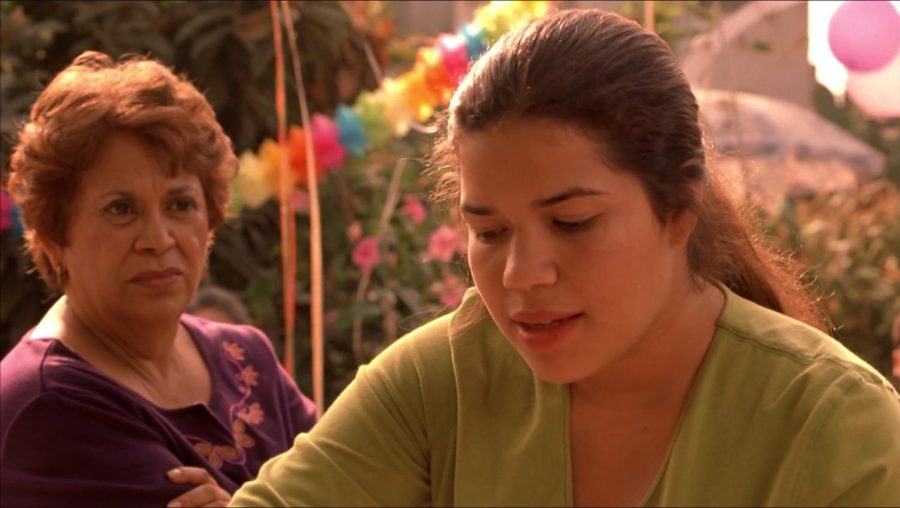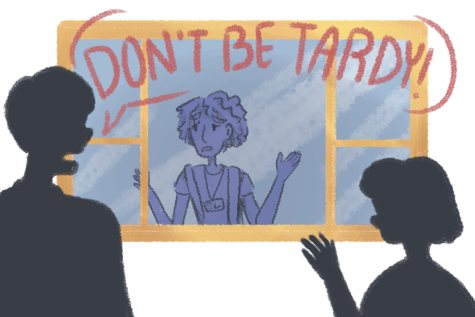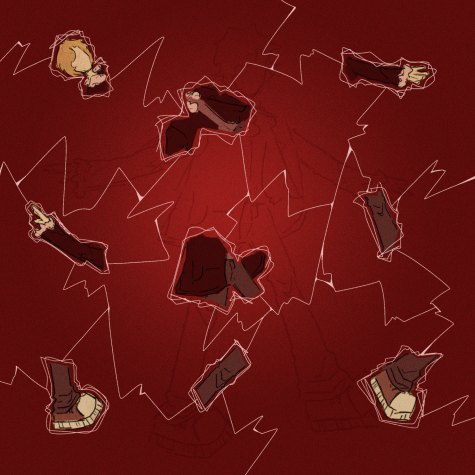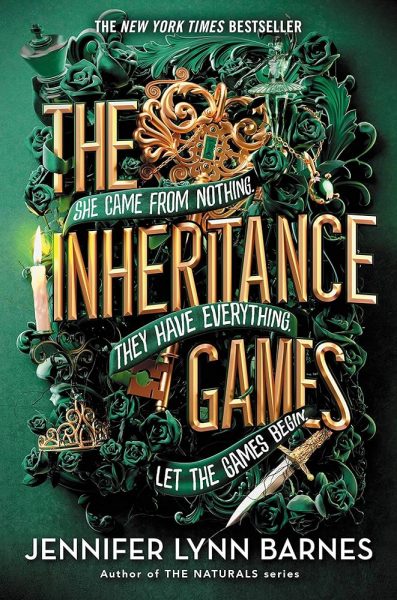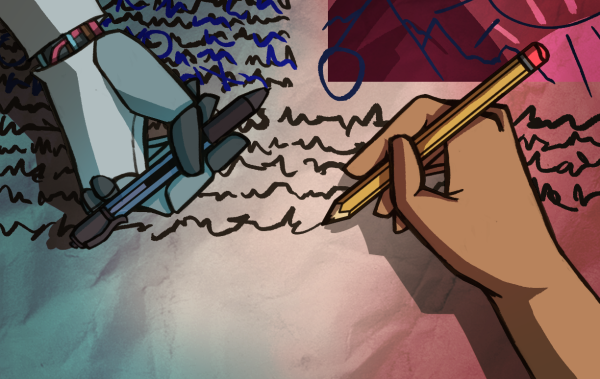Media Review: Real Women Have Curves
The first time I watched “Real Women Have Curves,” I was practically bawling my eyes out when it concluded. I assumed the 2002 film would solely focus on body positivity and womanhood, and felt prepared to handle such topics. However, I wasn’t prepared for it to hit so close to home. Like the protagonist, I am a Latina that will be a first-generation college student. I too have had a difficult relationship with my mother and family, with issues of cultural tradition often being at the center of our disagreements. However, filmmaker Patricia Cardadosa raises the stakes even further; the mother in this film does not want her daughter to go to college. The film is a painfully raw depiction of a mother-daughter relationship strained by the traditional ideals deeply rooted in Latin culture.
The film follows Ana Guzman (America Ferrera), as she navigates womanhood. On the cusp of graduating high
school, Ana slowly disconnects from her family due to the clashing views about a woman’s role in life she and her mother have. Ana is the opposite of the daughter her mother wants. Ana is independent, intelligent, outspoken, and ambitious. She has dreams of leaving her neighborhood in Los Angeles and wants to attend college. Throughout the film her mother constantly silences Ana and imposes the ideals she was raised with on her, resulting in a feud between the two. Ana’s mother does not want her to attend college; rather, she works in the dress factory to help their family make money. However, Ana defies her wishes and applies to Columbia University behind her back to get as far away from her as she can. This proves to be the main conflict of the movie, as Ana gets accepted with a full ride, but her mother does not allow her to accept because she wants her to stay and contribute to their family. Ana’s mother wants Ana to stay with her and take care of her until she’s old, just like she had to do with her parents, who they all live with. Throughout Ana’s life, she reinforced the idea that family is the most important value, and it should be put above all else, even if it means giving up her dreams. As a result, Ana’s mother uses this traditional ideal as a guilt trip tactic to force Ana to stay, constantly making her feel bad about leaving her family behind for college. She goes as far as to try to convince Ana that she’s pregnant, soon finding out that she’s experiencing menopause. Her mother becomes depressed, as child-making was the most sacred experience a woman can have. With her mother’s womanhood taken away, Ana attempts to find meaning in hers.
While I was attracted to this film with the assumption that I would feel more empowered about my body and emerging journey of womanhood, I received a greater understanding of the decisions I must make in the future.
After being complimented by a boy in her class, Ana begins a romantic relationship with him, seeking only pleasure and not marriage. With her mother constantly pushing the idea of marriage in her head, Ana decides to defy this and just fall in love. From this relationship, Ana realizes that she must actually become independent to live the life she wants. Already, the relationship helped her gain a sense of confidence in herself, and hope for the future. Soon after their relationship starts, Ana and the boy become sexual, which is discovered by Ana’s mother. Her final decision to defy her mother’s views becomes the nail in the coffin of her relationship with her mother. Ana realizes soon after that even despite her mother’s disapproval, she must go to New York and find herself. On the day Ana leaves, she attempts to reconcile with her mother before she goes, begging her at her door to come out and say goodbye. But her mother never comes out, deciding to break the relationship between the two. Ana leaves, leaving her old life behind, and becoming independent. In the film’s final minute, we see Ana walking in the streets of New York, confidently strutting down, ready to take on the world.
“Real Women Have Curves” is a painful depiction of the effects of upholding tradition can have on a family. Ana as a woman was expected to submit to her mother and almost had to give up her dreams at the cost of her expected role to provide for her family. However, this was not Ana’s definition of a woman, and she knew she had to break the generational cycle her family had imposed on her to find her own womanhood. While I was attracted to this film with the assumption that I would feel more empowered about my body and emerging journey of womanhood, I received a greater understanding of the decisions I must make in the future. I realized that eventually, someone has to break the cycle of tradition no matter how hard it is. As I prepare to leave for college, I know I must choose the path that’s right for me, even if it means leaving my family, no matter how much it hurts them.

When Aaliyah isn't working in the journ room, she's usually running around the school, balancing the other six clubs she's involved in. Outside of school she constantly keeps herself busy, overindulging in teen dramas from the early 2000's. She's most like Summer Roberts from The O.C., but thinks she's a Rory Gilmore.


